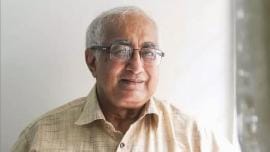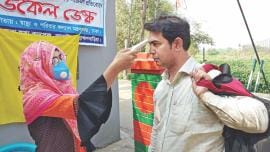Do mothers ever leave us?
11 February 2021, 18:00 PM
Opinion
Winners and losers in a Covid-19 economy
28 September 2020, 18:00 PM
Opinion
Can Covid-19 make us stronger?
18 August 2020, 18:00 PM
Opinion
International Blockchain Olympiad 2020 / The youth of Bangladesh shine on the world stage
13 July 2020, 18:00 PM
Opinion
A eulogy for a polymath and a mentor
3 May 2020, 18:00 PM
Opinion
Are we doing enough to combat the coronavirus pandemic?
12 March 2020, 18:00 PM
Opinion
A daydreamer’s guide to a futuristic Bangladesh
1 December 2019, 18:00 PM
Opinion
Blockchain: Ticket to universality of truths?
3 November 2019, 18:00 PM
Opinion
How to open the floodgates for foreign investment
7 October 2019, 18:00 PM
Opinion
The looming climate crisis: Where is our Greta Thunberg?
30 September 2019, 18:00 PM
Opinion









